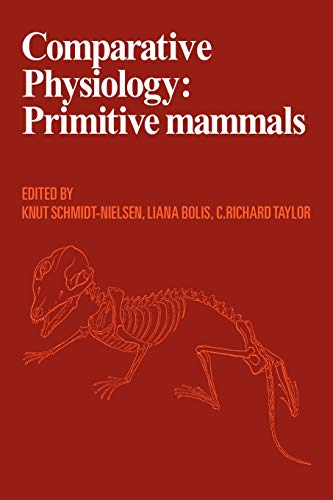Comparative Physiology: Primitive Mammals
Comparative Physiology: Primitive Mammals is backordered and will ship as soon as it is back in stock.
Couldn't load pickup availability
Genuine Products Guarantee
Genuine Products Guarantee
We guarantee 100% genuine products, and if proven otherwise, we will compensate you with 10 times the product's cost.
Delivery and Shipping
Delivery and Shipping
Products are generally ready for dispatch within 1 day and typically reach you in 3 to 5 days.
Book Details
-
Publisher: Cambridge University Press
-
Author: Charles Richard Taylor
-
Language: English
-
Edition: 1st Edition
-
ISBN: 9780521106306
-
Pages: 356
-
Binding: Paperback
-
Format: Import
-
Dimensions: 8.8 x 6.0 x 0.9 inches
-
Release Date: 04-06-2009
About The Book
Comparative Physiology: Primitive Mammals challenges the conventional notion that 'primitive' animals are less evolved or less complex than their 'non-primitive' counterparts. Instead, the term 'primitive' (or more accurately 'conservative') refers to the fact that these animals have preserved many characteristics of their evolutionary ancestors. Their ability to adapt to a variety of environmental conditions demonstrates their evolutionary success.
This book brings together papers from the Fourth International Conference on Comparative Physiology, held at Crans-sur-Sierre in 1978. The conference, sponsored by various international scientific unions, provided a platform for scientists from multiple fields to gather and present their findings on primitive mammals. The volume offers a comprehensive look at these animals through the lens of comparative physiology, exploring their evolutionary significance and how they have managed to thrive across diverse environments.
Comparative Physiology: Primitive Mammals is a must-read for biologists, physiologists, and anyone interested in evolutionary biology, as it sheds light on the often overlooked success of these so-called 'primitive' creatures.





